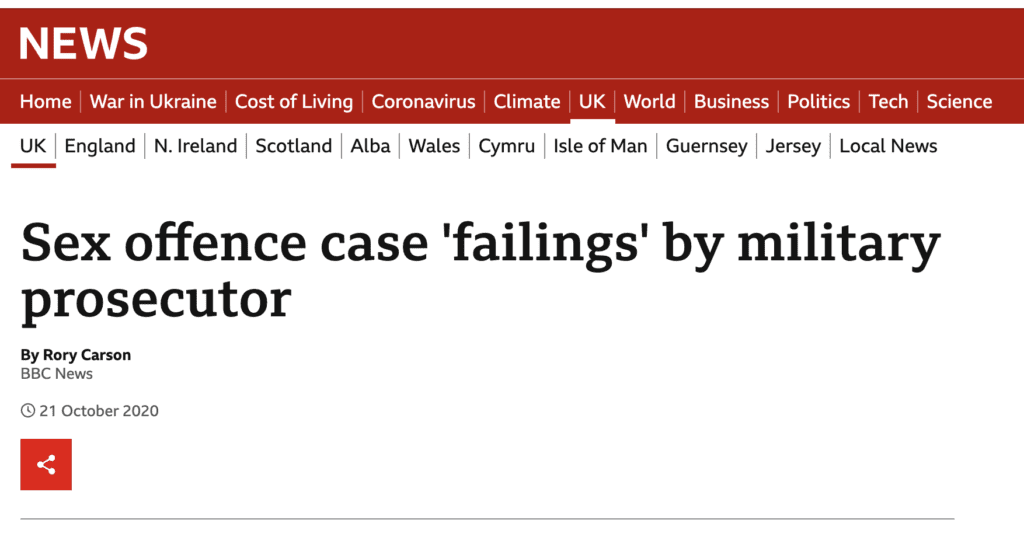‘The Human Rights Act is the only legal tool survivors of sexual trauma have to hold the state to account for failures like these. If we lose it, women – including service women – will suffer very badly. And once it is gone it will be very hard, if not impossible, to get it back.’
I was badly sexually assaulted while serving in the Royal Navy. The man was charged but when the case got to Court Martial, there was such a catalogue of serious failings by the military prosecutor that the case was dropped.
I tried to raise my concerns about this, as well as wider concerns about the way I had been treated since reporting the sexual assault, but after an internal investigation lasting the best part of two years, my complaint was wholly rejected, the Navy taking the opportunity to criticise me personally, suggesting that I felt myself somehow ‘superior’ to others – and clearly wanting to put me firmly in my place.
I was later horrified to learn that the prosecutor that had so badly mishandled my case had been the same prosecutor that had mishandled the case of the late Cpl Anne-Marie Ellement – the soldier that had died some years before after alleging rape and bullying in the Army – and following which the military prosecuting authority had had to formally and publicly apologise to her family.
The only way I could secure any kind of acknowledgment of what had been done to me and how badly the Navy had messed up my case was by using the Human Rights Act. Article 3 protects us from ‘inhuman and degrading treatment’ which includes rape and serious sexual assault and means that when such awful things happen, the state is under an obligation to ensure that there is an appropriate criminal law response. That had not happened in my case and I brought legal action against the Navy/MoD for its failures. The case settled in my favour. It did not give me the justice I had originally hoped for, but it was a very important process and meant that I received some official acknowledgement for the wrongs that had been done to me.
Many people do not appreciate the importance of the Human Rights Act until their rights are violated. I was one of those people. But without the Human Rights Act, there would simply have been no legal options for me. It is the only legal tool survivors of sexual trauma have to hold the state to account for failures like these. If we lose it, women – including service women – will suffer very badly. And once it is gone it will be very hard, if not impossible, to get it back.
The author was a serving member of the Royal Navy.
